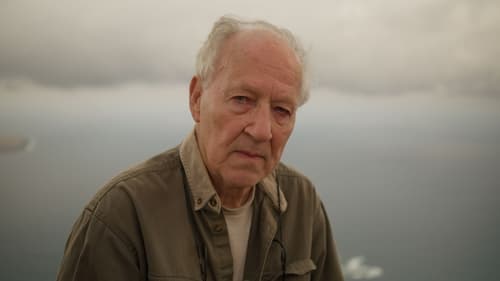
Self
“Nothing is typical for Werner, only the atypical is typical for him.” This is just one of many attempts to characterize Werner Herzog. Documentary filmmaker Thomas von Steinaecker spoke to actors, directors, directors of photography and producers who have worked with Herzog over his long career—including directors Chloé Zhao, Joshua Oppenheimer and Wim Wenders, singer Patti Smith and actors Nicole Kidman, Christian Bale and Robert Pattinson. We also hear from Herzog himself, with extraordinary anecdotes about film locations and shoots, his admiration for Lotte Eisner, and his eternal search for beauty. The interviews are carefully punctuated by archive footage of Herzog never seen before, iconic excerpts from his feature films and documentaries, and his cameos in cartoon series such as The Simpsons. Together they create a kaleidoscopic image of a radical visionary and dreamer, and of his very own “Werner World.”
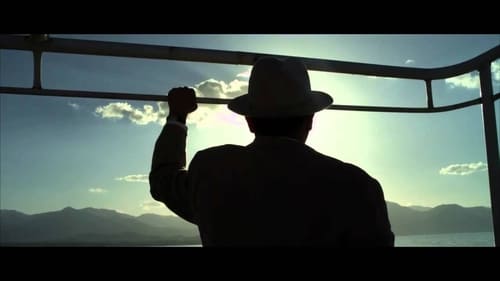
Cinematography
Saroyanland is a docu-drama focusing on the journey of famous writer William Saroyan to the birthplace of his Armenian family Bitlis, in Turkey in 1964. While retaking the same road, the film aims to understand Saroyan's unique attitude to belonging, witnessing the self-discovery of a man who followed the traces of his Armenian ancestors.

Director of Photography

Director of Photography

Cinematography
Berlin during the Nazi reign: Young music student Ursula is a talented musician and a fervent admirer of the "Führer". When she is asked to assist renowned composer Broch, who was ordered to compose a cantata for Hitler′s 50th birthday, it first seems like a dream fulfilled. Over the time, Broch and Ursula fall in love, and her relationship with the former communist gradually changes Ursula′s perspective on the realities of Nazi Germany. But falling in love with a Nazi means a huge moral conflict for Broch.

Himself
It was the biggest escape in the history of the Berlin Wall: in one historic night of October 1964, 57 East-Berliners try their luck through a tunnel into West Berlin. Just before the last few reach the other side, the East German border guards notice the escape and open fire. Remarkably, all the refugees and their escape agents make it out of the tunnel unscathed, but one border guard is dead: 21-year-old officer Egon Schultz.
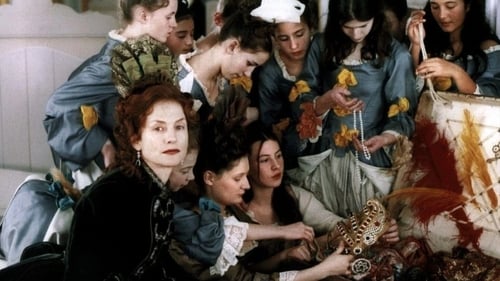
Director of Photography
Late 17th Century: Anne de Grandcamp and Lucie de Fontenelle, two little girls from Normandy, arrive at the Saint-Cyr school founded by Madame de Maintenon for educating the daughters of impoverished nobles ruined in wars and making them into free women. Madame de Maintenon is the secret wife of Louis XIV, and empowered by his support, she offers "her" two hundred fifty girls a playful and avant-garde education. Anne and Lucie, two inseparable friends, allow themselves to be carried away by the promise of a bright future. But Maintenon has arrived at the pinnacle of power through scheming and debasing herself and she now fears the fires of hell. She is counting on her model school to atone for her past sins.
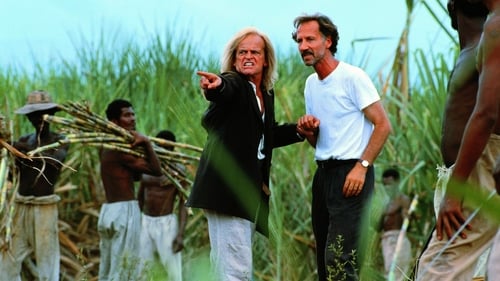
Self (archive footage)
En los años 50, Werner Herzog compartía piso con Klaus Kinski, un diabólico ególatra. Kinski padecía repentinos e injustificables arrebatos de ira o locura, durante los cuales podía llegar a destrozar el mobiliario del apartamento. La terrible personalidad de Klaus fascinó a Werner y entre ambos nació una estrecha amistad que se fue al garete durante el rodaje de la película "Aguirre, la cólera de Dios". (FILMAFFINITY)

Director of Photography
Sweety Barrett is a giant of a man with the mind of a child. An easy target in a corrupt world, Sweety becomes embroiled in a smuggling operation unleashing a spiral of dangerous and unexpected events.
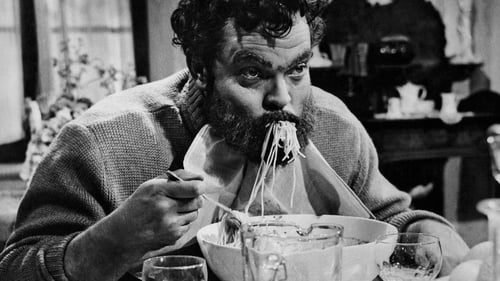
Cinematography
Orson Welles' archives of unfinished/never released movies and the last years of his life from the perspective of Oja Kodar (life and artistic partner of Orson Welles in his last years).
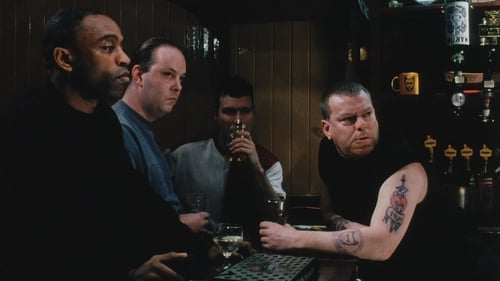
Director of Photography
Cuatro policías se infiltran en una banda de hooligans para llegar hasta sus líderes y evitar así los numerosos actos vandálicos que llevan a cabo. Sin embargo, uno de ellos se identifica tanto con los hinchas violentos que poco a poco se convierte en uno de ellos.

Cinematography

Director of Photography

Cinematography
Poetic documentary about the deconstruction of a railroad track in South Germany.

Director
Poetic documentary about the deconstruction of a railroad track in South Germany.

Cinematography
For many years the old Waller worked as a railwayman. After Waller is informed that "his" track will be closed down and that he will be retired, he walks the route for one last time and starts to remember his life along the way: Beginning in his childhood in the 1920s, he commemorates the death of his great love as well as he recalls the legal battle with his illegitimate daughter.

Director
Katja Junge plays the title role in this West German romantic drama, directed by noted cinematographer Thomas Mauch. Maria is just as girl who can't say "Nein," thus she goes through several lovers before the plot proper gets underway. When Maria finally falls in love for real, it is with repressed astronomer Robert Duessler. Afraid to make physical contact, Duessler prefers to gaze at Maria from a distance through his telescope. Not surprisingly, the film's title translates to Mary of the Stars.

Self
Making-of documentary that covers "Cobra Verde," Herzog's last film with Kinski before Kinski's death.
This is the documentary that registers the behind the scenes moments of "Cobra Verde", the last project that united director Werner Herzog to actor Klaus Kinski.
The notorious and infamous relation between the two filled Cinema theatres with masterpieces, but also filled pages of Cinema History with mutual declarations of both love and hate.

Director of Photography
The Distant Land (German: Das weite Land) is a 1987 Austrian-German drama film directed by Luc Bondy. It was screened in the Un Certain Regard section at the 1987 Cannes Film Festival. Based on a play by Arthur Schnitzler, which is generally referred to in English as The Vast Domain and was also adapted by Tom Stoppard as Undiscovered Country.

Director of Photography
Celebrated West German director Alexander Kluge presents this drama that strings together vignettes of events taken from everyday newspaper headlines. Germans are shown in their reactions to World War II, minorities, and the elderly. A side plot follows a meeting between former West German Chancellor Helmut Schmidt and East German leader Erich Honecker.

Self (archive footage)
Documental autobiográfico que retrata la vida y el trabajo del director Werner Herzog. Se incluyó como extra en el DVD de "Enemigo íntimo"

Director of Photography
A poignant film essay about 'superfluous people' facing up to a moment of crisis in their lives.

Director of Photography
The ultimate answer to all your problems: a slap in the face.

Director of Photography
The Cold War is peaking again in divided Germany in the early 1980s. How to deal with the upcoming nuclear annihilation shows this Alexander Kluge short.
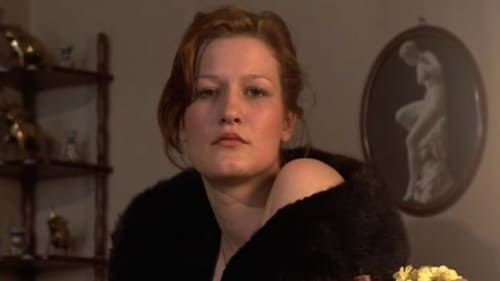
Director of Photography
La emoción y los sentimientos no deben ser confundidos con el sentimentalismo. La emoción es antiquísima y mucho más poderosa que cualquier expresión artística. El filme observa a jóvenes parejas enfrentándose a dificultades mientras intentan trasladar sus experiencias amorosas hacia tomas de decisiones claras. Una película llena de ideas, detalles y asociaciones, escenas de ficción, imágenes documentales, materiales de archivo y música de ópera.

Director of Photography
Reverend Huie Rogers is a preacher at the Bible Way Church of Our Lord Jesus Christ in Brooklyn. He is the topic of this short film, during which launches into an epic call-and-response denunciation of human hubris, greed, corruption and failure. The use of lengthy shots present it less like a sermon and more a performance, and induce an almost trance-like state.
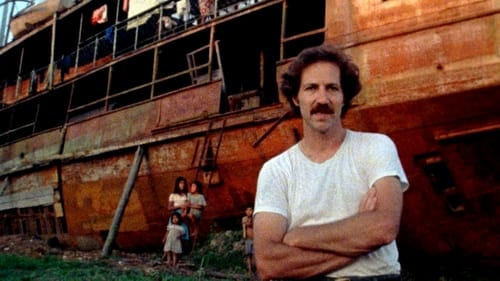
Self - DOP
La selva amazónica, 1979. El equipo de filmación de «Fitzcarraldo» (1982), película dirigida por el director alemán Werner Herzog, pronto se topa con problemas relacionados con el casting, las luchas tribales y varios accidentes, entre muchos otros contratiempos; pero nada comparado con el arrastre de un enorme barco de vapor por una montaña, al tiempo que Herzog abraza el camino de una cierta locura con tal de hacer realidad su visión.

Director of Photography
The third episodical film, after Deutschland im Herbst and Der Kandidat, in which notable German film makers reflect on the state of their country.

Director of Photography
Fitzcarraldo es un soñador que planea construir un teatro de ópera en Iquitos, en la Amazonía peruana, así que, para financiar su proyecto, se embarca en una aventura épica para recolectar caucho, un producto muy rentable, en una región remota e inexplorada de la selva.

Director of Photography
Doctors say that Veronika, a woman in her 20s, is schizophrenic. She is compliant, which makes her an easy target for men. She's religious, believing she is God's favorite child; she searches for Jesus. She has sent a letter to a filmmaker suggesting her life as the subject for a movie. We see her raped then take up with a series of men she believes are Jesus, each willing or insistent on sex. A young man with his own crisis of faith invites her to join a cult. We see her involuntarily committed to an asylum from time to time where medication and constraints await. Her wealthy parents are helpless. Will a medical professional ever talk to her? If one did, would it help?

Cinematography
The documentary follows Gene Scott, famous televangelist involved with constant fights against FCC, who tried to shut down his TV show during the 1970s and '80s, and even argues with his viewers, complaining about their lack of support by not sending enough money to keep going with the show.
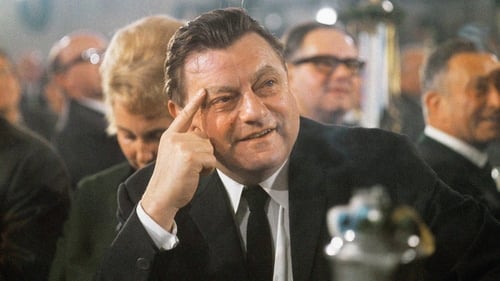
Director of Photography
Made with an eye to the autumn of 1980 when the German parliamentary elections took place, The Candidate examines Germany’s history past and present and Franz Josef Strauß, the man who, as the CDU/CSU candidate, aspires to be elected to the most important political office in the land.
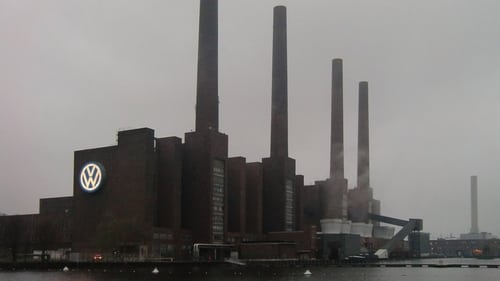
Director of Photography
Lo primero que llama la atención es la austeridad casi documental con que Schroeter encara la parte inicial del relato, ambientada en un pequeño y paupérrimo pueblo de Sicilia. Schroeter va dando una visión bucólica de esa gente y su tierra, de sus ritos y tradiciones, pero no deja de señalar la miseria y falta de trabajo que los empuja a emigrar a Alemania. Con el viaje de Nicola hacia Wolfsburg, donde está ubicada la fábrica automotriz Wolkswagen, se inicia la segunda parte, tremendamente crítica para con la sociedad alemana, en donde Schroeter va descubriendo paulatinamente signos de indiferencia, violencia y racismo. La tercera y última parte de Desarraigo se concentra en el juicio al que Nicola es sometido, acusado de asesinar a dos hombres. Aquí, poco a poco Schroeter se va desprendiendo del tono realista que imprimió a las dos primeras partes del film y recurre a una puesta en escena operística.

Producer
Lo primero que llama la atención es la austeridad casi documental con que Schroeter encara la parte inicial del relato, ambientada en un pequeño y paupérrimo pueblo de Sicilia. Schroeter va dando una visión bucólica de esa gente y su tierra, de sus ritos y tradiciones, pero no deja de señalar la miseria y falta de trabajo que los empuja a emigrar a Alemania. Con el viaje de Nicola hacia Wolfsburg, donde está ubicada la fábrica automotriz Wolkswagen, se inicia la segunda parte, tremendamente crítica para con la sociedad alemana, en donde Schroeter va descubriendo paulatinamente signos de indiferencia, violencia y racismo. La tercera y última parte de Desarraigo se concentra en el juicio al que Nicola es sometido, acusado de asesinar a dos hombres. Aquí, poco a poco Schroeter se va desprendiendo del tono realista que imprimió a las dos primeras partes del film y recurre a una puesta en escena operística.

Cinematography
En su búsqueda de material histórico de partida que pudiera confrontar con sus libros, una profesora de historia inicia un viaje por el presente y el pasado. Con el comentario de un narrador sólo parcialmente presente y que se manifiesta en forma de rodilla parlante, se desgrana, en un orden experimental, un collage de múltiples fragmentos, algunos dramatizados y otros procedentes de material de archivo. (FILMAFFINITY)
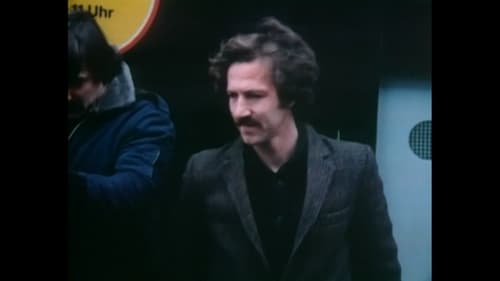
Self
Documental biográfico sobre Werner Herzog, donde se explora la conexión entre el director y sus obras.

Director of Photography
Cahiers du cinéma critic Serge Daney asks whether The Kingdom of Naples is "leftist fiction, kitschy melodrama, photo-roman, a decadent chronicle of a city, opera in a minor key, or simply the first realistic narrative film by Schroeter?" It is all of these and more: an epic chronicle of proletarian family life in Naples from 1943 to 1972 that brilliantly captures the wretched poverty, overwrought passions, and political, religious and economic upheavals of Sicily across two generations. Schroeter assimilates neorealist aesthetics and class sympathies with the tempestuous excesses of popular melodrama, borrowing freely from Rossellini, Pasolini, Visconti, Brecht, and Rossini. (Facets)

Director of Photography
The life and struggles of the German writer Heinrich von Kleist.
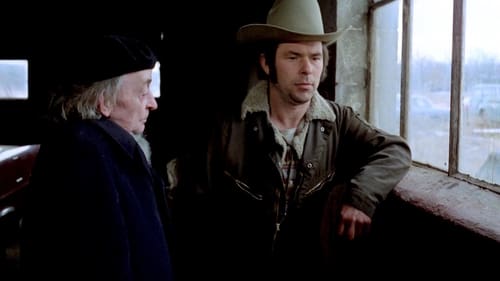
Director of Photography
Cuando Bruno Stroszek sale de prisión, le advierten que debe dejar de beber. Con pocas habilidades y menos expectativas, sobrevive como músico callejero. Precisamente en la calle conoce a Eva, una prostituta, con la que entabla amistad. Después de ser golpeados por el chulo de ella, deciden unirse a Scheitz, un excéntrico vecino de Bruno, que ha decidido emigrar a Wisconsin, en los Estados Unidos.

Producer
Erika and Franziska haven't seen each other for 4 years. 10 years earlier they both felt that they had the same chances in life: both were young, attractive and imaginative. They overlooked what would, right from the outset, separate them: their very different emotional make-up, their different character. In a long nighttime discussion the friends try to clear up these differences - not without some glimmer of hope.

Director of Photography
Erika and Franziska haven't seen each other for 4 years. 10 years earlier they both felt that they had the same chances in life: both were young, attractive and imaginative. They overlooked what would, right from the outset, separate them: their very different emotional make-up, their different character. In a long nighttime discussion the friends try to clear up these differences - not without some glimmer of hope.

Director of Photography
A documentary short examining the language and performance of auctioneering, filmed at the World Livestock Auctioneer Championship in Pennsylvania.

Director of Photography
El protagonista de la película —la más convencional de Kluge desde el punto de vista narrativo— es Ferdinand Rieche, un ex comisario que, tras ser expulsado de la policía a raíz de su escaso entusiasmo por las limitaciones impuestas por el estado de derecho, encuentra trabajo como responsable de la seguridad de una planta química. Después de haber demostrado con creces su disparatado celo profesional y su mezquindad personal, Rieche vuelve a ser despedido y se propone poner al descubierto por cuenta propia las lagunas existentes en la protección que reciben los cargos políticos del país. En Ferdinand el radical tenemos, pues, una divertida sátira sobre uno de los personajes prototípicos de la Alemania de la época, el del pequeño-burgués fanáticamente obsesionado con la seguridad.

Director of Photography
In order to be reunited with Mahmood (Ören), a man she was promised to as a young girl, 20-year-old Shirin (Erten) leaves the life she had in a small village in Turkey in search of him.
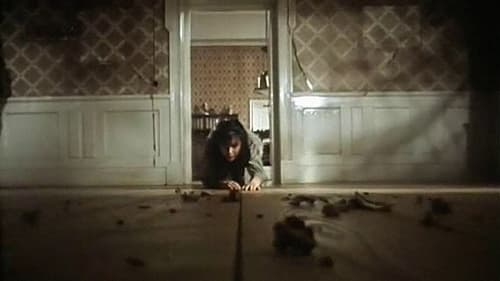
Cinematography
An adaptation of Franz Kafka's classic story about Gregor Samsa, a man who awakes and sees himself suddenly turned into a repulsive insect.

Director of Photography
West Berlin, 1974. The revolution didn't happen like it was supposed. Grischa, a 30-year-old actress dissatisfied with standard left-wing politics, interviews working women to find out how they deal with being both mothers and members of society.

Director of Photography
Roswitha runs an illegal abortion clinic in Frankfurt to support her student husband and children. When she is forced to close her practice she delves into political and social activism.

Director of Photography
Short by Alexander Kluge.

Director of Photography
En 1560, poco después de la destrucción del imperio inca, una expedición española parte de las montañas de Perú rumbo a las selvas del Amazonas, en busca de la legendaria tierra de El Dorado. A través del diario del fraile Diego Gaspar de Carvajal iremos conociendo detalles y circunstancias de aquella peligrosa aventura...

Director of Photography
Año 2034. El espacio exterior está dominado por compañías codiciosas. Dos astronautas, no muy inteligentes, malviven gracias a sus negocios sucios, el contrabando y el asalto de naves espaciales.
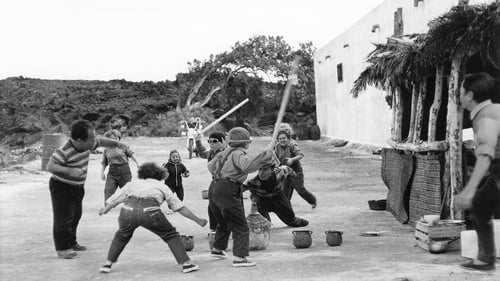
Director of Photography
Un grupo de enanos encarcelados empiezan una rebelión caótica contra la autoridad. Destruyen todo a su alrededor intentando captar la atención del instructor al cargo, quien tiene algunos de ellos retenidos. El personaje central, Hombre, es la representación de los siete pecados mortales, mientras los enanos luchan entre ellos para conseguir territorio y comida. Cada vez son más crueles. Es una reflexión sobre la humanidad como especie.

Director of Photography
The Flying Doctors of East Africa (German: Die Fliegenden Ärzte von Ostafrika) is a 1969 documentary film by Werner Herzog about the "flying doctors" service of the African Medical and Research Foundation in Tanzania, Kenya, and Nairobi.

Director of Photography
The Indomitable Leni Peickert is a loose, half-hour sequel to Alexander Kluge's second feature film, Artists in the Big Top: Perplexed. This shorter work, seemingly assembled from leftover footage from the longer film, continues the story of the circus owner Leni Peickert after she first abandoned her idea of a radical circus in favor of a job in television. It opens where the previous film left off, at a TV station where Leni and her friends have gathered as employees, attempting to infiltrate the corporate establishment with their own revolutionary ideas. This radicalism is somewhat undercut by the way that Kluge deliberately shoots down the low-cut blouse of one of these young revolutionaries, the camera eyeing her cleavage and then panning down, to the text she's reading, and then back up again, finding her sexuality ultimately much more interesting than her radicalism.
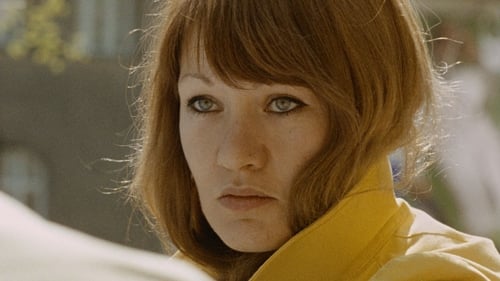
Producer
Katharina and Anne go on trips, visit cafés, acquaintances and parties. In doing so, they explore the chances of female emancipation in a male-dominated society. Katharina strives for a life without sentimental compulsion. She believes that she has succeeded, and therefore looks at the beloved friend Anne compassionate, as it can be good. Anne is learning the left jargon. But it is sheer helplessness. She says it's political commitment that she does not trust her friend Katharina, so Anne smiles as well.
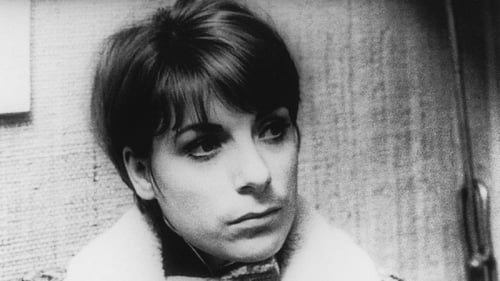
Director of Photography
Leni Peickert hereda un circo con el que intenta hacer una forma de entretenimiento socialmente relevante, su circo "reformista". Se arruina dos veces, y Leni deberá decidir si su sueño de un nuevo estilo de circo es demasiado optimista.

Director of Photography
Un paracaidista alemán herido de nombre Stroszek, es enviado a Kos, una tranquila ciudad de Creta, junto a su mujer Nora, una enfermera griega y otros dos soldados con heridas menores. Quedan recluidos en un polvorín de una vieja fortaleza y hay muy poco que hacer. Becker se dedica a traducir y transcribir inscripciones, Meinhart se divierte poniendo trampas para cucarachas y Nora ayuda a Stroszek a hacer fuegos artificiales usando la pólvora de las granadas que hay en el polvorín. Lentamente y debido al calor y al tedio, Stroszek comienza a volverse loco y querrá arrastrar a sus compañeros a una misión descabellada. Basada en un relato escrito por Ludwig Achim Von Arnim (1818).
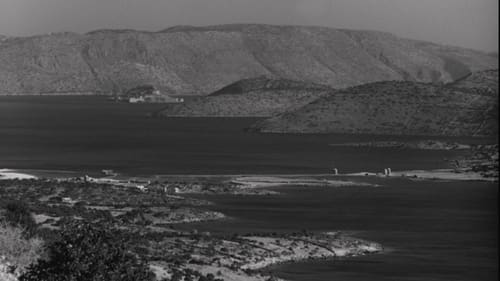
Cinematography
Early short by Werner Herzog shot while being on location in Greece shooting "Lebenszeichen".

Director of Photography
Kluge’s short-film starring his sister/muse Alexandra.

Director of Photography

Director of Photography
Documental sobre el rodaje de Mouchette de Robert Bresson

Cinematography
Short by Edgar Reitz.
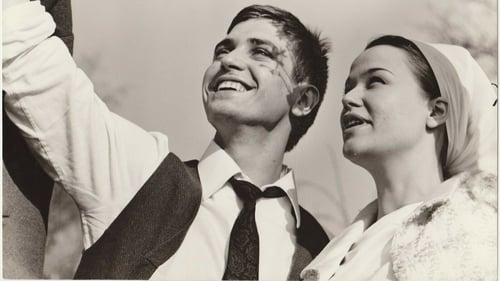
Director of Photography
Elisabeth, estudiante de fotografía, conoce a Rolf, estudiante de medicina. Tras enamorarse y casarse, tienen numerosos hijos, pero ello no evita la infelicidad de Rolf, frustrado por un vacío que no consigue llenar...

Director of Photography
Anita G. es una joven de 22 años, que se traslada desde Alemania Oriental a la Occidental en busca de mayores expectativas de vida. Sin embargo su lugar de pertenencia más el hecho de ser judía harán que su adaptación sea imposible. Comenzará entonces a realizar actos de rebeldía, en contra de esa nueva sociedad y de las instituciones que la reglamentan. (FILMAFFINITY)

Cinematography
A short montage about rhythm, movement, and speed.

Cinematography
Early documentary by Edgar Reitz.

















































